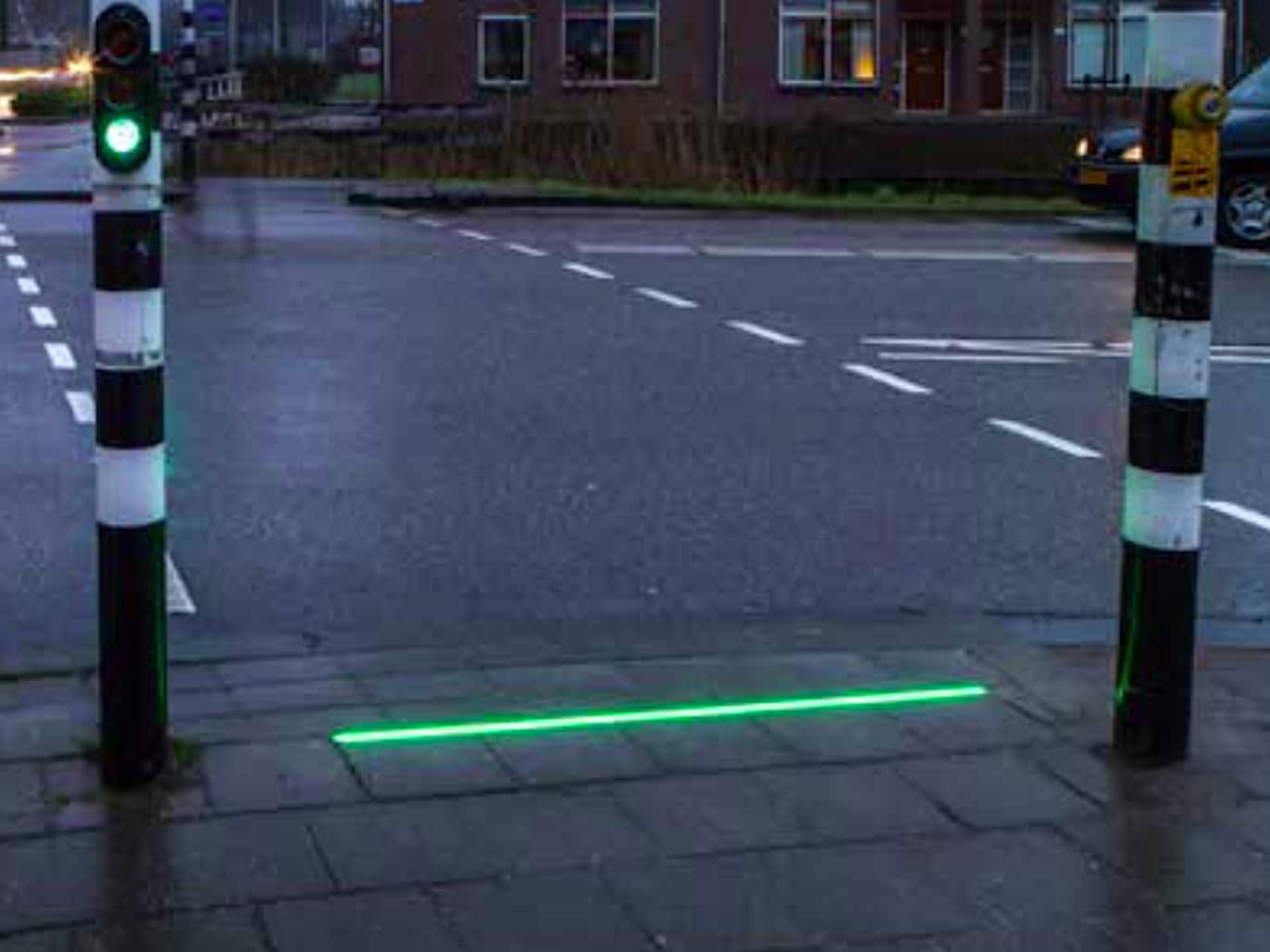This Dutch town has traffic lights on the ground because people are staring at their phones

A Dutch town has devised a solution for distracted smartphone users. Image: REUTERS/Phil Noble

Get involved with our crowdsourced digital platform to deliver impact at scale
Stay up to date:
Cities and Urbanization
A Dutch town has introduced an unusual way of trying to keep smartphone-addicted residents safe: Installing traffic lights in the pavement.
Bodegraven, in the Netherlands, has put strip lights in the floor at a pedestrian crossing — meaning people who stare at their phones all day will see them, preventing them from wandering dangerously into traffic. (We heard about the news via the BBC.)
Apart from their unusual location, they work just like ordinary traffic lights: Green means go, and red means wait.

The lights are built by HIG Traffic Systems, a company based in the town, which hopes to sell them more widely to other towns and cities, The Guardian reports. Right now they're just being used at a single intersection in a trial.
A spokesperson for the company told Dutch-language site OmroepWest: "Smartphone use by pedestrians and cyclists is a major problem. Trams in The Hague regularly make an emergency stop because someone looks at their smartphone instead of traffic."
However, the lights have also proved controversial. "It's not a good idea to help mobile phoneusers look at their phones," Dutch Traffic Safety Association employee Jose de Jong reportedly said.
"We don't want people to use phones when they're dealing with traffic, even when walking around. People must always look around them, to check if cars are actually stopping at the red signals."
Don't miss any update on this topic
Create a free account and access your personalized content collection with our latest publications and analyses.
License and Republishing
World Economic Forum articles may be republished in accordance with the Creative Commons Attribution-NonCommercial-NoDerivatives 4.0 International Public License, and in accordance with our Terms of Use.
The views expressed in this article are those of the author alone and not the World Economic Forum.
Related topics:
The Agenda Weekly
A weekly update of the most important issues driving the global agenda
You can unsubscribe at any time using the link in our emails. For more details, review our privacy policy.
More on Cities and UrbanizationSee all
Victoria Masterson
April 17, 2024
Victoria Masterson
April 12, 2024
Victoria Masterson
April 11, 2024
Sam Markey and Andrew Watkins
April 5, 2024
H. Kit Miyamoto, Olivia Nielsen, Ommid Saberi and Guido Licciardi
March 27, 2024
Victoria Masterson
March 26, 2024






